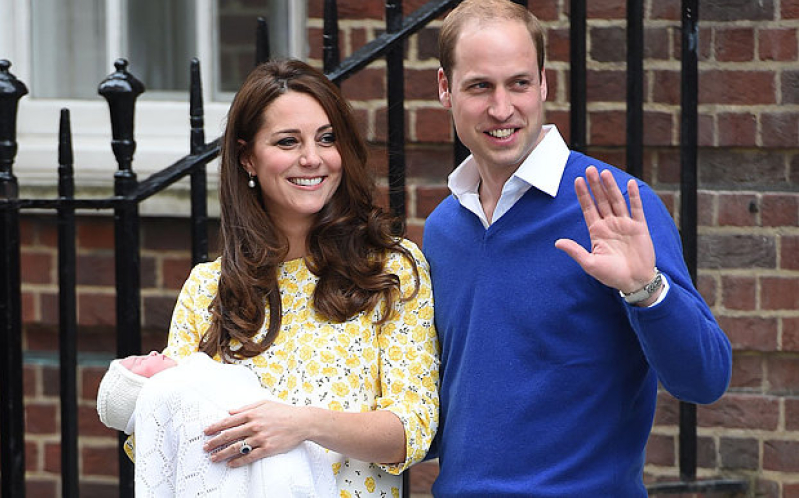
British history and tradition has always been part of the royal family, which is currently headed by Queen Elizabeth II. Those sensibilities extend to everyone under the House of Windsor, including Prince William and his newest child, Charlotte Elizabeth Diana.
According to Carolyn Durand and Michael Rothman of ABC News, the royal baby's official title will be Her Royal Highness Princess Charlotte of Cambridge. She is now fourth in line to the throne behind Prince Charles, William and George.
"The naming of the second royal baby is similar in time frame to when the Duke and Duchess of Cambridge chose George Alexander Louis for their first child," Durand and Rothman wrote. "George was born on July 22 and his name was released a little more than a day later."
ABC News elaborated on the naming process behind the Duke of Cambridge, whose full name is William Arthur Philip Louis. His brother, Prince Harry, had his name announced on the day he was born, an exception to the traditional royal naming process.
"When William was born on June 21, 1982, his parents didn't reveal his name until one week later," Durand and Rothman wrote. "William's father, Prince Charles, was a month old before his name was made public."
According to the British Monarchy official website, before 1917, members of the British Royal Family had no surname, but only the name of the house or dynasty to which they belonged. For the most part, members of the Royal Family who are entitled to the style and dignity of HRH Prince or Princess do not need a surname.
However, if the Duke and Duchess of Cambridge want to include a surname for their children, there are three choices available - Mountbatten-Windsor, Wales or Cambridge.
In 1917 George V adopted Windsor - after the castle of the same name - as the "surname" of his family.
And then in 1960, The Queen and The Duke of Edinburgh combined their surnames to make Mountbatten-Windsor - their direct descendants can use this name but it isn't binding.
The official last name of Prince William is Mountbatten-Windsor. In his military role, he used Wales, which is taken from his father, as his surname.
Andrew Hewitt of The Mirror elaborated on the significance behind the royal baby's name.
"The decision of what to call their second child was William and Kate's alone, and the name was chosen simply because they liked it," Hewitt wrote. "Her middle names were chosen in honor of Charlotte's great-grandmother the Queen, and her late grandmother Princess Diana."
Hewitt reported that the royal couple chose to settle on the name Charlotte, the feminine version of Charles, as a nod to the Duke's father, the Prince of Wales. The name also had important historical links within the royal bloodline.
"The name has historic royal links having already had a Queen Charlotte and Princess Charlottes - although they were all several hundreds of years ago," Hewitt wrote.
According to Hewitt, Queen Charlotte shunned her Christian name, Sophie, to go by the title; she was married to King George III. She then gave birth to a daughter in 1766 and named her Charlotte, who became known as the Princess Royal.
"Charlotte will share a name with a modern-day European princess but as fourth in line to the throne her chances of becoming monarch are better," Hewitt wrote, noting that person was 29-year-old Charlotte Marie Pomeline Casiraghi, who is eighth in line to the throne of Monaco.
When it comes to daily life, however, Hewitt noted that the royal family rarely refers to their surnames.
"Day to day, Charlotte will be known as Princess Charlotte of Cambridge," Hewitt wrote. "But if she does need a surname (most likely for marriage), she will be styled Mountbatten-Windsor."
Hewitt reported that had the rules surrounding the titles HRH not changed, Charlotte would be unable to call herself a princess. The rules date back to 1917, when King George V declared that only the monarch and the children of the sovereign's sons can have HRH titles.
"Shortly before Prince George's birth, the Queen used an ancient style of legal powers to repeal the rules allowing all children of the eldest son of the Prince of Wales can carry the title HRH, meaning the newborn will be known as HRH Princess Charlotte," Hewitt wrote.





![[Exclusive Interview] A revelation within the brink of life and death — Meg Leung’s mission in Christian art](https://www.gospelherald.com/media/cache/thumbnail/7/21/72163sp_273w_150h_1x_1y.jpg)

